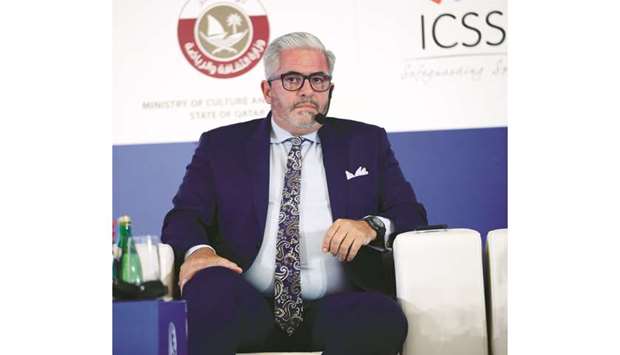The Sport Integrity Global Alliance CEO Emanuel Macedo de Medeiros has called on all stakeholders to come together and fight digital piracy, which has reared its ugly head in recent times due to the rampant theft of world sport and entertainment content by beoutQ
The Saudi Arabia-based beoutQ launched in August 2017 has been at the forefront of a brazen piracy operation that has stolen and aired hundreds of football matches and other sporting events whose rights were purchased by the Qatar-owned broadcaster beIN Sports. In addition, beoutQ gives access to a treasure trove of entertainment content through embedded IPTV apps, through which its set-top boxes stream pirated live television and on-demand movie content from all over the world, including over 10,000 major international movies and up to 35,000 TV show episodes in different languages.
On Monday, FIFA, UEFA and the rights holders of various football competitions collectively released a statement following an independent report by MarkMonitor into the actions of beoutQ. The statement called on Arabsat and all other satellite providers to stop providing a platform for piracy.
Yesterday, while speaking during a panel discussion at the SIGA Inter-Regional Summit at the Marsa Malaz Kempinski in Doha, Medeiros said IP Rights & Digital Piracy has put the very survival of the business model of sports broadcasting at risk.
“I want to emphasise how unprecedented and dangerous piracy is for sports in general and for the sustainability of sports organisations. This is definitely an urgent problem and it does not only concern beIN Sports or Qatar but the whole sporting industry, sports organisers, broadcasters who have legitimately paid for the rights,” he said.
A former FIFA committee member on Club Football and UEFA Professional Football Strategy Council, Medeiros, blamed international organisations have failed to tackle piracy efficiently. “The sports event organisers have been left alone to fight this crusade. Together with the broadcasters, it’s time to turn a new page. We will demand accountability because politicians were elected to serve a purpose. Broadcasting is the main income source of sports organisations, without whom no one will be able to organise competitions and develop grassroots sports, so it’s definitely a huge unprecedented setback to sports,” he added.
The Portuguese said SIGA is launching a White Paper on Sport Integrity. “We at SIGA as part of wider strategic approach to the problem of integrity are launching a white paper. And of course the protection of IP rights and fight against digital piracy, which undermines sport’s economic viability is one of the key areas.
“You can count on us to be proactive in this field, whether it hurts or not. This is not a regional or political issue. This overt piracy affects all broadcasters, sports and grass roots locally. The survival of the very business model of broadcasting is at stake,” he said.
“We will engage all key stake holders, starting by UEFA, with whom we signed a co-operation agreement only three months ago. It’s time to have a united front, and time for the stakeholders to take a lead and demand legal recognition and protection that they are entitled to.
“For us at SIGA, this is the heart of our mission in sport. We want to take decisive action based on collective efforts. We call upon all stakeholders, governments and other international organisations to join us in fighting this cause,” the SIGA CEO added.
At the panel discussion, Duncan Walkinshaw, Director of Programming at beIN Sports explained the extent of the satellite piracy that beoutQ is carrying out. “This is totally unique. The content is presented in a legitimate and bonafide manner but actually totally rebrands beIN’s sports content. It is the most dangerous form of piracy that has ever taken place. It is political. It mocks Qatar and is a problem for all broadcasters,” Walkinshaw said.
Professor Craig LaMay said: “The commercialisation of sports intellectual property rights, with audiovisual rights at the top, represents the largest income stream of sport competition organisers and the wider industry. With the rising cannibalisation of those rights and its consequent drop in commercial value, sport’s economic viability is at stake.”

Sport Integrity Global Alliance’s CEO Emanuel Macedo de Medeiros at the SIGA Inter-Regional Summit in Doha yesterday. PICTURE: Jayaram


